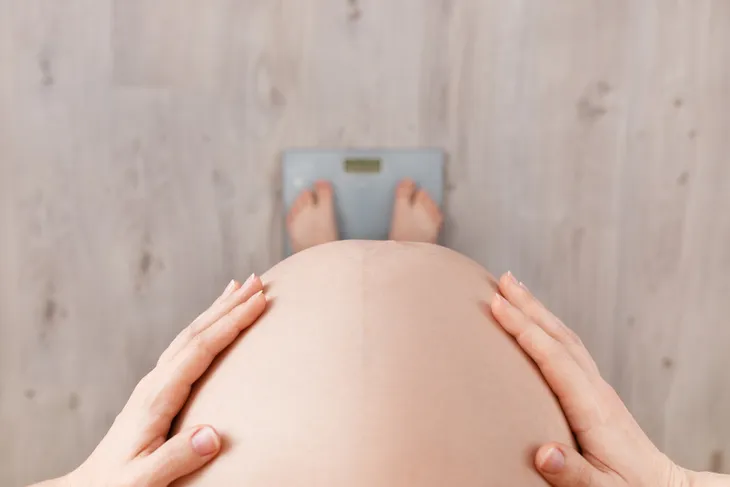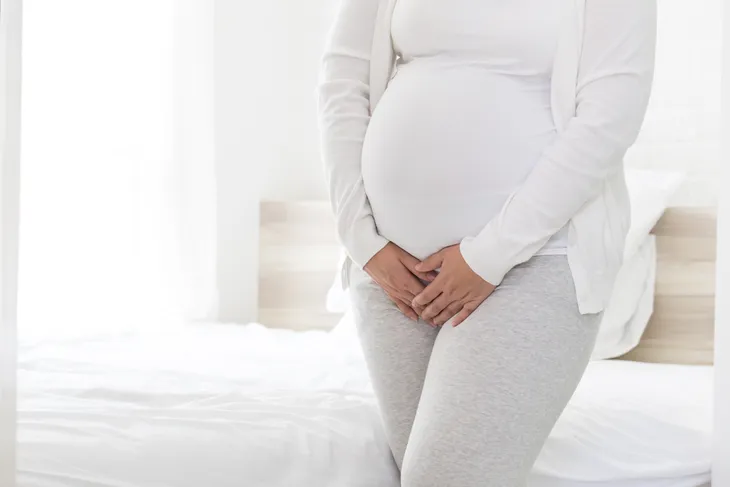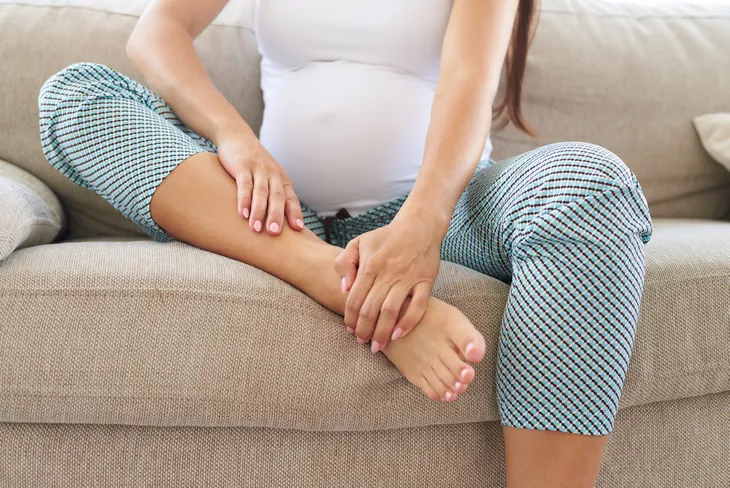It may feel as big as a whale as you begin your third trimester of pregnancy (which will last from week 27 to the end of your pregnancy)—like you can’t get any bigger—but trust me; you’re about to!
As your belly swells; your little one grows to between 6- and 9-pounds during this time. Not only that, your baby will start blinking, dreaming, tasting what you eat, enjoying the sound of your voice (even if you hit a few flat notes), and delivering some serious Kung-Fu kicks. It’s a mix of utter joy and pure discomfort during the third trimester. However, you’re in the home stretch and soon to meet your beautiful baby!
Here are 10 things to expect during your third trimester of pregnancy…
Varicose Veins
Unfortunately, those spider veins you developed in your second trimester due to poor blood circulation in your lower extremities might end up as swollen blue or reddish veins that bulge beneath the surface of the skin during the third trimester. Varicose veins are common during this time and tend to develop in the calves, legs, and thighs, as well as in the rectum, where they are known as hemorrhoids.
Fetal Activity
In the third trimester you’ll have a difficult time ignoring the fact that there’s suddenly a busy baby inside your belly. This is the period where you’ll feel lots of fetal activity—kicking, poking, the odd limb in the gut—reminding you of why you’re putting your body through all of this discomfort.
Shortness of Breath
Many expectant moms complain about shortness of breath during the third trimester. This naturally occurs the more the uterus expands and presses up into your diaphragm below your lungs. To stay comfortable while you sleep, prop your upper torso up on pillows to expand your airway.
Continued Breast Growth
It’s likely that your breasts will grow a whole 2-pounds, mainly in the third trimester. As breast tissues continue to grow, you might notice colostrums (first milk), a yellow discharge leaking from your nipples.
Back Ache
As your baby continues to grow, your lower back and pelvis may bear the brunt of the excess weight, making it uncomfortable to sit or stand for long periods of time. Frequent massages and flat shoes with cushioned support will be your best friends. This is also a good time to consider a maternity belt to help support your belly and relieve the strain on your back.
Weight Gain
Natural weight gain is between 25 and 35-pounds extra during the third trimester—especially when you consider your fetus, the placenta, amniotic fluid, swelling uterus and breasts, and excess blood and fluid retention.
Frequent Urination
As your baby continues to grow, the pressure on your bladder will increase, causing moments of urinary urgency and even incontinence (urine leaks) if you sneeze, laugh, or cough. You might want to wear a panty liner to catch any embarrassing and accidental leakage.
Abdominal Pain
Don’t fret; abdominal achiness is normal during the final weeks of the third trimester. You might even experience a few Braxton Hicks contractions, which are considered “warm-up contractions” that come and go as you get closer to the end of the third trimester and ready for delivery.
Swelling
Painful swollen feet, hands, calves, and ankles can become a drain during the third trimester due to fluid retention. To reduce swelling, elevate your feet above your heart with a few pillows or a foot stool and attempt physical activities that cool you down and take the weight off—such as swimming.
Waddling
During the final weeks of your pregnancy as the third trimester approaches its end, your baby will switch positions, turning head down, bottom up and dropping slightly to ready for delivery. You can imagine how this will feel with a 6-pound or more weight in your uterus. The new positioning could cause you to waddle like a duck in your final weeks of pregnancy.













